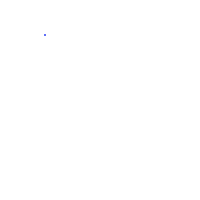This was my 15th trip to North Korea, and I felt at ease returning. It had been almost a full year since my last visit and I needed to be back. Our failed attempt to return in November left us disappointed and sad, but I don’t think it compared to how the locals must have felt. They were so glad and relieved to see us. I am not sure if they knew why we could not come, or was it that we had given up on them? I wanted to ask but...
The welcome we received was genuinely heart-warming, expressed in so many ways. Setting up rooms for our clinics, finding additional fuel to keep the generator running, heated rooms in one place, moving the kerosene heater from room to room during the day to take the edge off the cold at another place, blankets to cushion our wooden benches where we would sit all day seeing patients, and even rebuilding the toilets. With each visit, the sense of familiarity grew and clinics were set up quickly: unpacking all of our gear, connecting power, setting up multiple stations (reception, Fibroscan, ultrasound, consultation, pharmacy) smoothly transiting so that the busy clinics ran with a quiet hum. Our team, including 4 doctors, huddled in corners of the large room in teams of two or three (a local doctor, a visiting doctor, and a translator - when needed), talking to patients, consulting with each other and agreeing on the best way forward. Notes scribbled, results explained, languages learnt, prescriptions written and counseling done.
Every now and then, there was laughter as we shared a quiet joke. Chocolates shared, coffee topped up, we often sat working for hours at a time glued to the chair, only to get up and stretch our legs, thaw out in the sun for a minute or two and then rush back in. No one complained.
I teach, I learn and I share. I guess that is why I come. Perhaps a more accurate order should be that I learn, I share and I teach. Diligent, persistent, caring, devoted, unassuming in their work, the local doctors remind me of what it really means to be a doctor. Their intimate knowledge of their patients, the trust that I see between them, sharing mobile numbers, calling them in to clinic, explaining, reassuring them. Doing home visits weekly for those who cannot come to them. One special incident among many: Hospital doctors ask us to meet with a doctor who traveled far to come to clinic in place of his patient, who waited in line in the cold, explaining that his patient needs treatment but is too ill to attend, not wanting the patient to miss out. Then, happy that he was able to convince us to trust him with the patient's medicine, returned back to the patient, on a bike over a 43 km dirt road.
Could I do that? For our team, it is a battle balancing the need to see many patients, but needing each exchange to be meaningful - that each patient is heard and acknowledged. Not always successful, but moments during the day when we do this well, captured with a smile, a simple word or phrase, the twinkle of an eye, the nod of the head when connections are made. Words are scarce, even dangerous. Every now and then, a confession is made. “I am less tired,” “my appetite and indigestion is improved”…and then I am caught off guard when I hear, "I feel like I am floating…" ("I am so much better") as this lady walks away from me. I am so glad!
Not everyone is satisfied. Hundreds of patients are seen, some are turned away from treatment disappointed, but we remind them it is because they do not need it. Relief often replacing their disappointment when we tell them they are okay. They need to hear this. But then there are the others, where the disease is not something we can help with right now. This is hard. Telling them that they are sick, often very sick, but we are not sure of why and we have little to help them.
I feel hopeless but they are accepting that this is it, and grateful that we tried.
Our program is without doubt a miracle or many miracles come to life. I am not sure how far we can push this - is there a limit to what we can realistically achieve? We have nearly 1,600 patients on treatment, 4 treatment sites so far, adding hepatitis C treatment and a 5th treatment site this year, two labs rebuilt so far and expanding laboratory systems, promoting prevention programs and care of patients with late stage liver disease. Well beyond any dream or wish, this has taken on a life of its own. I am reminded that greed for the needy is good greed and hence we will remain very very greedy.
Contributed by: Dr. Alice Lee

